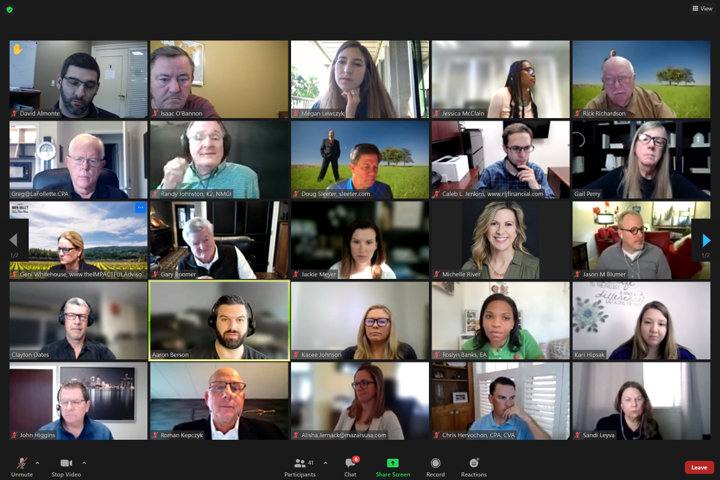Leaders often seem mystified when it comes to creating and directing culture when employees are working remotely. The first step is acknowledging that you can no longer forge culture in the same way as in an office-centric model. Once that is understood, you can develop unique strategies to improve your firm’s remote culture.
How to improve your remote work culture
Work culture affects how your employees and clients perceive you—which significantly determines your business’s success. Without a positive work culture, your firm could see a decrease in employee retention and client loyalty.
Organizations adapting well to this massive remote work shift have invested in reinventing their processes and touchstones to align with their desired cultures. Recruiting, onboarding, career paths, performance reviews, and collaboration are factors to consider when building a remote team. There are many ways to improve your firm’s work culture, even when remote. To get started, follow the tips below.
Create a culture of trust
An excellent company culture delivers a work environment characterized by trust and mutual respect. Take the proper time to give attention to building trust between leadership and employees.
When there is a baseline of safety and confidence in the relationship, emotionally connected teams can be more vulnerable to one another. This means they’re more willing to share a crazy idea or push back when they see something they disagree with. Easy ways to increase trust are showing up to virtual meetings, creating Slack channels that foster water cooler chats, and being present as you onboard new employees.
Communicate the mission and goals clearly
Creating a high-performing remote culture is much easier if everyone on the team understands the company’s vision and goals. What defines your organization’s culture are the beliefs and behaviors that exist within it.
Your mission must be clearly defined, communicated to your teams, and reinforced constantly. There must be more to your company values than the words printed on a website or posted on the wall. By doing this, your team is reminded of the importance of what they are achieving together. Easily define your mission and goals by seeking employee feedback, speaking with managers early and often, and checking in with yourself to ensure you’re leading by example.
Improve team communication and relationships
Your remote team culture will flourish or fail purely on communication. Get communication wrong, and you’ll find that your culture won’t stick. A remote team that communicates effectively can dramatically impact its overall productivity and long-term viability. Even though everyone is separated, teams can build great communication cultures by bringing their office cultures to the virtual space.
Open communication channels within your firm will promote transparency and enable the kind of team communication that firms sorely need. I’m not talking just online meetings that people dread, either. The goal should be to create an environment where everyone contributes, not just the outgoing or vocal ones. Reduce any red tape or formality associated with communication to avoid employees just keeping quiet, which isn’t healthy for employees or your team.
Collect feedback regularly and make adjustments
Onboarding new employees and adjusting them to your practice’s culture is particularly of concern. If you’re not experienced with managing remote teams, chances are you won’t get everything right the first time. And that’s okay as long as you learn from your hiccups and mistakes. Ask each remote employee to pay close attention to onboarding and other internal processes and tell you what worked and what didn’t. Continually improving this process will make it easier to hire new employees in the future.
While improving your remote practice’s culture may seem daunting, with effort and consistency, your firm’s culture will not only improve but also thrive.
Thanks for reading CPA Practice Advisor!
Subscribe Already registered? Log In
Need more information? Read the FAQs





